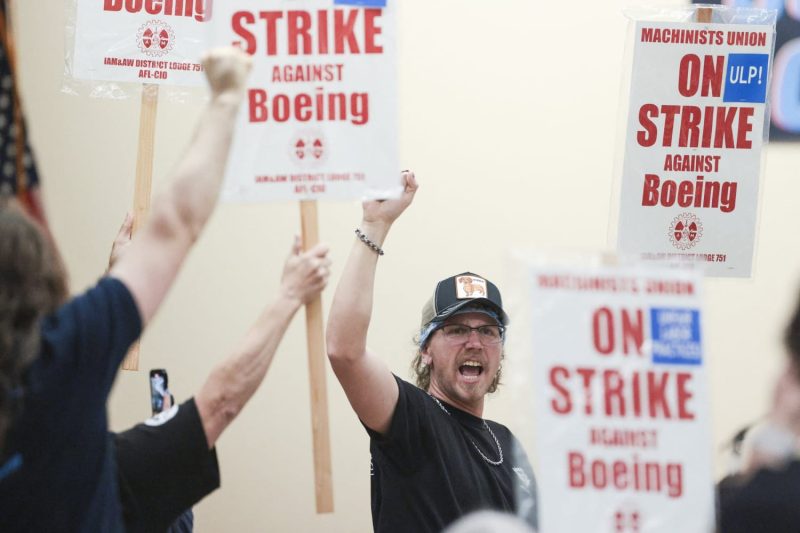Strikes, protests, and labor disputes are nothing new in the industrial world. However, when they occur at major corporations like Boeing, they gain significant attention due to their capacity to influence industries on a global scale. Recently, workers at Boeing rejected an offered contract with an overwhelming majority, resulting in yet another wave of strikes, as the workers demand better work conditions and compensation that balances with their commitment and contribution to the company.
The situation that catapulted this dispute into the forefront of public attention took place at Boeing’s Everett factory, where workers had been voicing their concerns over workload, wages, and in particular, the increasing reliance on temporary labor by the company. This reliance on temporary, or permatemp, workers, who are often unpaid and lack benefits, has been perceived as a significant affront to full-time employees. Workers reportedly believe that the practice undermines their job security and jeopardises standards of manufacturing.
The offered contract, which proposed only minor amendments to pay scale and working conditions, was met with discontent and disappointment by the workers. The perceived negligence towards workers’ grievances resulted in an overwhelming ‘No’ as 98% of the union members rejected the contract, clearing the path for full-fledged strikes in demand for better terms.
The strike action is especially notable in Boeing’s history as it is among the most extensive and unified responses from their employees. This reflects the rising frustration and sense of injustice among the workforce calling for substantial change and regard for their welfare.
A significant aspect of their complaint is regarding wages. While Boeing is enjoying a period of relative financial success, with its share prices climbing steadily, the workers argue that their pay has remained stagnant. This incongruity has been a crucial thorn in the workers’ side.
On the surface, the issue seems centered directly on wages and job security, but a deeper exploration exposes a conflict of interests between labor and management. The present dispute underscores the mounting anxieties among workers about the increasing income inequality and eroding job security. If there was a pie metaphorically representing the company’s revenues, the workers feel they are receiving an unreasonably small slice.
On the flip side, company management has a different viewpoint. They argue that the rising temporary workers deployment is a necessity to meet the soaring demands of the market. They also emphasize that the use of contractual workers is an industry-wide practice. But these arguments are received as hollow, as they neither address the workers’ concerns nor provide a plan to improve the existing situation.
In response to the strike, Boeing’s management tried to emphasize the company’s commitment to the workforce and the value they place on their employees. However, as the talks remain stalled, and strike action continues, this sentiment appears unrepresented in the proposed contract.
The situation unfolds under the watchful gaze of various stakeholders; suppliers, customers, airlines, and the global aviation industry. In the midst of tight production schedules and increasing order backlogs, this dispute could likely affect Boeing’s ability to deliver its aircraft on time. Consequently, the strike possesses the potential of rippling down the supply chain, impacting companies and customers worldwide.
In conclusion, the Boeing worker’s strike is more than just a labor dispute. It reflects the current state of the workforce in big corporations and underlines the rising concerns about job security, the utilization of temporary labor, and the perceived erosion of full-time jobs. Ultimately, how Boeing responds to this strike and addresses its employees’ concerns will set a precedent for other corporations worldwide. As the workers continue to demand a workplace that values their contributions equitably, this conflict is a story unfolding under the magnifying glass, indeed for Boeing but also to labor rights on a global scale.




